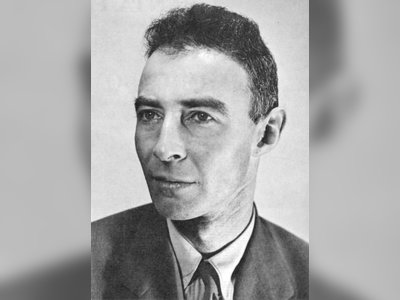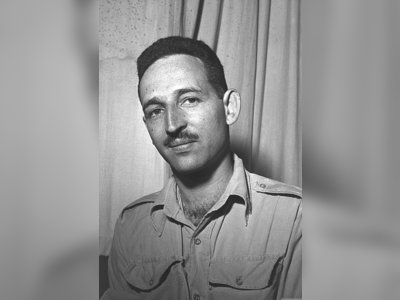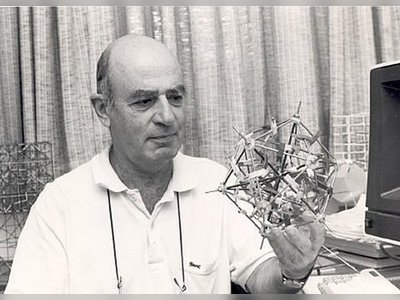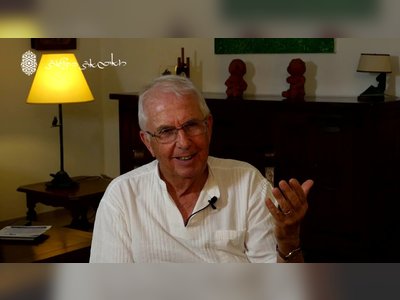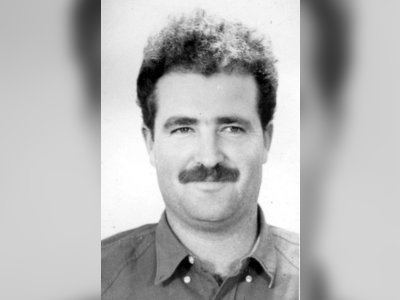מורשת גדולי האומה
בזכותם קיים
beta
Ray Kurzweil
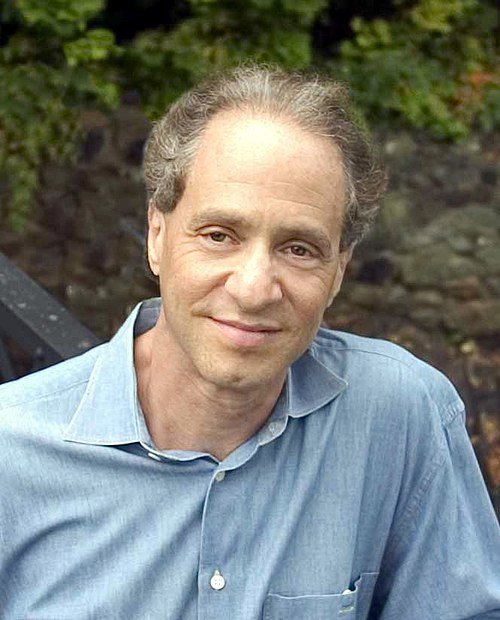
Ray Kurzweil is a prominent figure in the fields of technology and futurism. His inventions, visionary ideas, and literary contributions have significantly influenced the development of artificial intelligence and the way we think about the future of humanity. While his views and predictions may be subject to debate, there is no denying the impact he has had on the world of science and technology.
Raymond Kurzweil, born on February 12, 1948, is a Jewish-American inventor, futurist, and author, renowned for his pioneering work in optical character recognition (OCR), speech recognition, and other fields related to artificial intelligence. He has authored at least seven books, five of which have achieved considerable popularity. Two of his books, "The Age of Spiritual Machines" and "The Singularity Is Near," reached the top spot on Amazon's best-selling list of popular science books, with translations into at least nine languages, including Hebrew.
Ray Kurzweil was born to Jewish parents who had fled Austria shortly before the outbreak of World War II. His father was a music teacher and a notable conductor, while his mother was an artist specializing in visual arts. He grew up in Queens, New York, and from a young age, he exhibited a passionate interest in speculative science. He began programming at the age of 12 and made an appearance on the American television program "I've Got a Secret," where he played a composition generated by a computer program he had developed.
In 1970, Kurzweil earned a master's degree in computer science from the Massachusetts Institute of Technology (MIT).
Ray Kurzweil has authored several books on artificial intelligence, transhumanism, and technological singularity. One of his most famous works, published in 1999, is "The Age of Spiritual Machines," in which he explores the potential impact of future technologies on human existence.
In September 2008, he unveiled his new project, the establishment of the "Singularity University" in Silicon Valley, California, with the support of Google and NASA. The university focuses on interdisciplinary studies of emerging technologies for the benefit of humanity.
In December 2012, Kurzweil was appointed as Director of Engineering at Google, where he is involved in projects aiming to integrate artificial intelligence into Google products. These projects include "Machine Learning," which involves computers learning from input data, and "Natural Language Processing," which aims to enable computers to understand and use human language more effectively.
Ray Kurzweil is widely recognized for inventions that have had a significant impact on the advancement of technology and the improvement of the quality of life for people with disabilities. Notable inventions include:
1. Predicting the exact year when "smartphones" would be developed and describing their capabilities before they were even invented.
2. Describing the concept of the Internet before it became a reality.
3. Developing technologies that assist individuals with disabilities, such as text-to-speech and speech recognition systems.
4. Proposing a vision of nanotechnology that could be used to greatly extend human lifespans and address numerous health challenges.
Kurzweil's views on the future of humanity, particularly his concept of "the singularity," have been both praised and criticized. Some see him as a technological prophet, while others view his ideas as overly optimistic or even religious in nature. Critics argue that his vision overlooks important ethical, social, and environmental considerations.
Ray Kurzweil has received numerous awards and honors, including over twenty honorary doctorates from various academic institutions. In 2001, he was awarded the Lemelson-MIT Prize, the largest cash prize for invention in the United States, amounting to $500,000. Additionally, in 1999, he received the National Medal of Technology from President Bill Clinton.
In 2002, Kurzweil was inducted into the National Inventors Hall of Fame in the United States.
In 2015, he was awarded a Grammy Award for his outstanding contributions to music technology.
Early Life and Background:
Ray Kurzweil was born to Jewish parents who had fled Austria shortly before the outbreak of World War II. His father was a music teacher and a notable conductor, while his mother was an artist specializing in visual arts. He grew up in Queens, New York, and from a young age, he exhibited a passionate interest in speculative science. He began programming at the age of 12 and made an appearance on the American television program "I've Got a Secret," where he played a composition generated by a computer program he had developed.
Academic Achievements:
In 1970, Kurzweil earned a master's degree in computer science from the Massachusetts Institute of Technology (MIT).
Literary Contributions:
Ray Kurzweil has authored several books on artificial intelligence, transhumanism, and technological singularity. One of his most famous works, published in 1999, is "The Age of Spiritual Machines," in which he explores the potential impact of future technologies on human existence.
In September 2008, he unveiled his new project, the establishment of the "Singularity University" in Silicon Valley, California, with the support of Google and NASA. The university focuses on interdisciplinary studies of emerging technologies for the benefit of humanity.
In December 2012, Kurzweil was appointed as Director of Engineering at Google, where he is involved in projects aiming to integrate artificial intelligence into Google products. These projects include "Machine Learning," which involves computers learning from input data, and "Natural Language Processing," which aims to enable computers to understand and use human language more effectively.
Inventions:
Ray Kurzweil is widely recognized for inventions that have had a significant impact on the advancement of technology and the improvement of the quality of life for people with disabilities. Notable inventions include:
1. Predicting the exact year when "smartphones" would be developed and describing their capabilities before they were even invented.
2. Describing the concept of the Internet before it became a reality.
3. Developing technologies that assist individuals with disabilities, such as text-to-speech and speech recognition systems.
4. Proposing a vision of nanotechnology that could be used to greatly extend human lifespans and address numerous health challenges.
Views and Criticism:
Kurzweil's views on the future of humanity, particularly his concept of "the singularity," have been both praised and criticized. Some see him as a technological prophet, while others view his ideas as overly optimistic or even religious in nature. Critics argue that his vision overlooks important ethical, social, and environmental considerations.
Awards and Honors:
Ray Kurzweil has received numerous awards and honors, including over twenty honorary doctorates from various academic institutions. In 2001, he was awarded the Lemelson-MIT Prize, the largest cash prize for invention in the United States, amounting to $500,000. Additionally, in 1999, he received the National Medal of Technology from President Bill Clinton.
In 2002, Kurzweil was inducted into the National Inventors Hall of Fame in the United States.
In 2015, he was awarded a Grammy Award for his outstanding contributions to music technology.
- ריי קורצוויילhe.wikipedia.org
